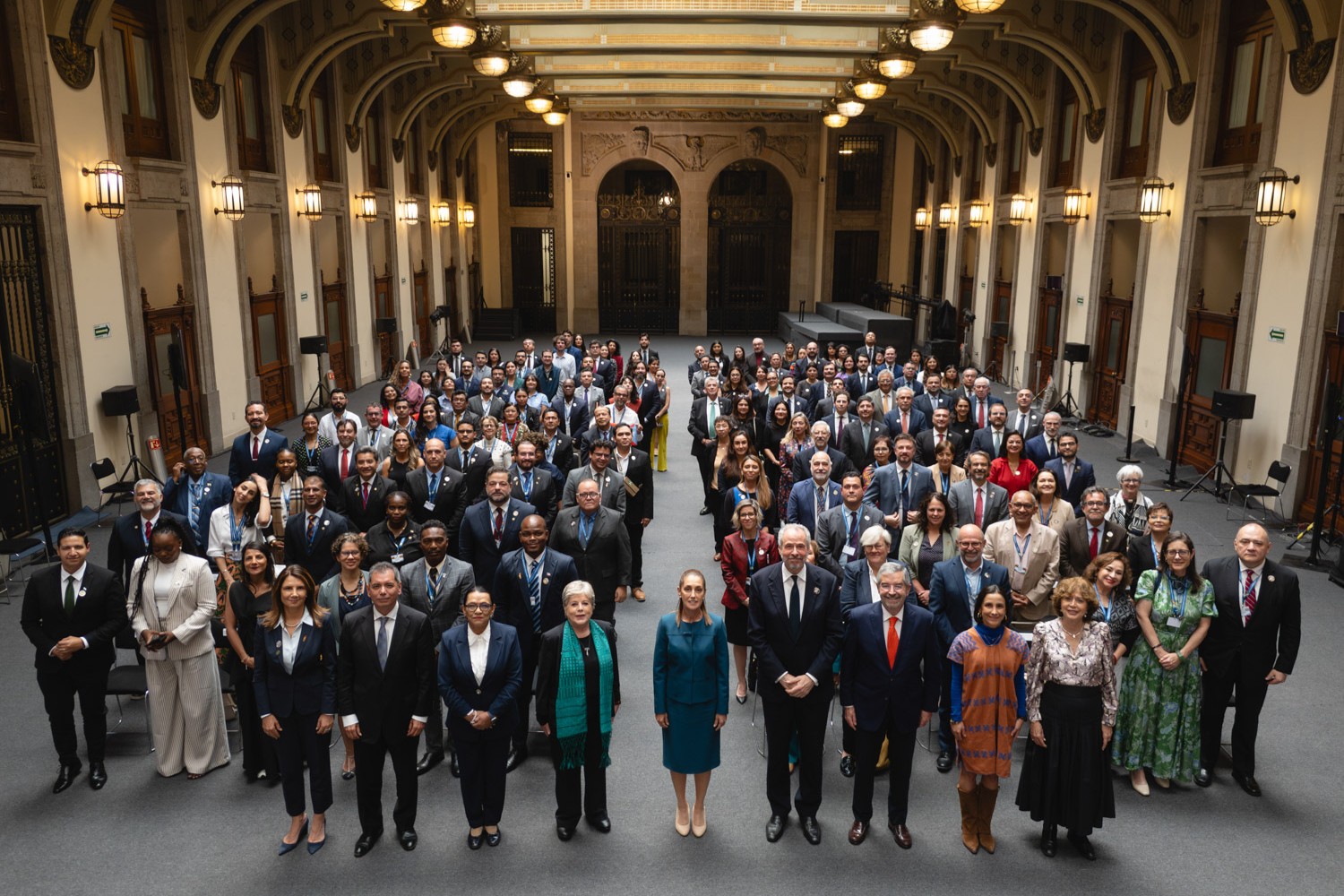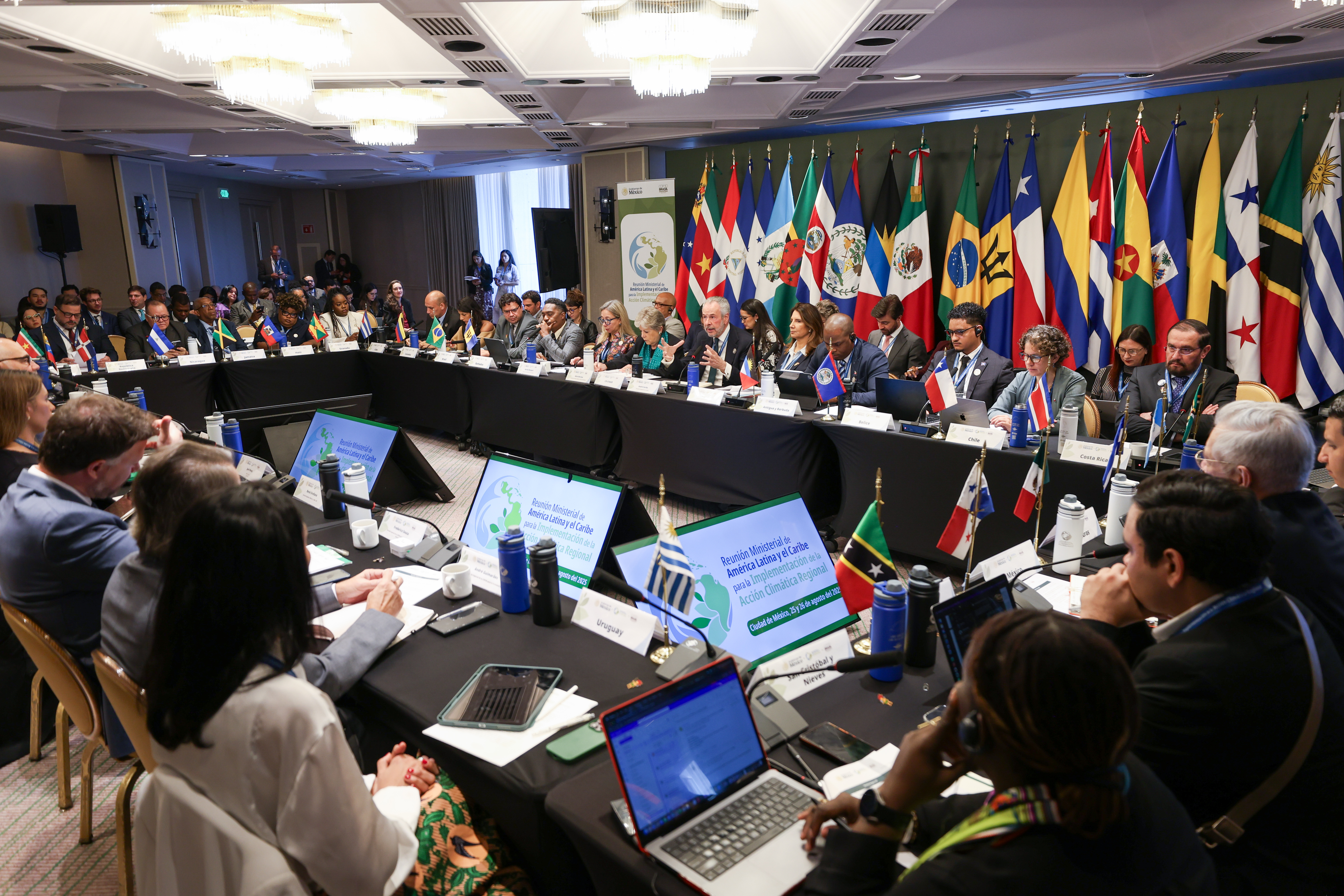Latin America and the Caribbean are discussing regional cooperation against climate change
Representatives from more than 20 countries, take part in a preparatory meeting for COP30 in Mexico City

By COP30 Presidency
This Monday–Tuesday (25–26 August), Latin American and Caribbean environment ministers are meeting in Mexico City to accelerate the implementation of regional climate action. In addition to ministerial debates on key topics for COP30, Mexican President Claudia Sheinbaum welcomed representatives from 22 countries to a session at the National Palace.
“Sustainable development cannot be seen only from an environmental perspective,” said the president. “There are necessarily three pillars — reducing poverty and economic, social, and environmental inequalities — and, I would say, a fourth, which today is of great importance: the sovereignty and self-determination of peoples.”
Organized by the Government of Mexico and the COP30 Presidency, the meeting in the Mexican capital seeks to strengthen multilateral cooperation and the leadership of Latin America and the Caribbean in the process leading to COP30. The hosts stressed that these efforts must address the region’s structural and historical inequalities, accelerating a transformation in decision-making processes with Latin American and Caribbean peoples at the center.
In his speech at the National Palace, COP30 President-Designate André Corrêa do Lago stated that combating climate change is a priority for the government of President Luiz Inácio Lula da Silva:
“Priority because it has a huge impact on people,” said Corrêa do Lago. “Climate change unfortunately, has the capacity to destroy many of the social gains we have achieved in recent years in our countries. Therefore, we must devote absolutely redoubled attention to our efforts to combat it — but in a fair and multilateral way.”
The ambassador also declared that COP30 should serve as a symbol of the strength of multilateralism, highlighting Brasil’s call for a Global Mutirão against climate change:
“Mutirão is a word that means 'everyone's effort in the same direction.' In this effort, each person does what they can and what they know how to do, without necessarily having to coordinate with others,” said the diplomat.

In addition to the session with the Mexican president, representatives from 22 countries took part in debates on Monday on topics such as the COP30 Action Agenda, common priorities for the conference, adaptation and resilience, and Nationally Determined Contributions (NDCs). One of the objectives of the meeting is to strengthen the region’s positioning and contribution to the international climate regime.
“Faced with the multiple crises we are experiencing, it is more important than ever to engage in dialogue on our common challenges,” said Mexico’s Minister of the Environment, Ms. Alicia Bárcena, during the opening session. “I am convinced that multilateralism continues to be our best strategy to meet targets, generate synergies, build agreements, and collectively provide solutions.”
According to data from the Intergovernmental Panel on Climate Change (IPCC), Latin America and the Caribbean account for about 11.3% of global greenhouse gas emissions. However, around 75% of countries in the region are already experiencing extreme climate events more frequently.
It is estimated that for Latin American and Caribbean nations to meet their climate commitments, investments equivalent to 3.7% to 4.9% of regional GDP will be needed by 2030. To this end, the annual flow of resources must range from USD 215 billion to USD 284 billion.
A ministerial declaration is expected to be released on Tuesday, when sessions on climate finance and energy, among other topics, will also take place. The document is to be made public at the end of the sessions.
